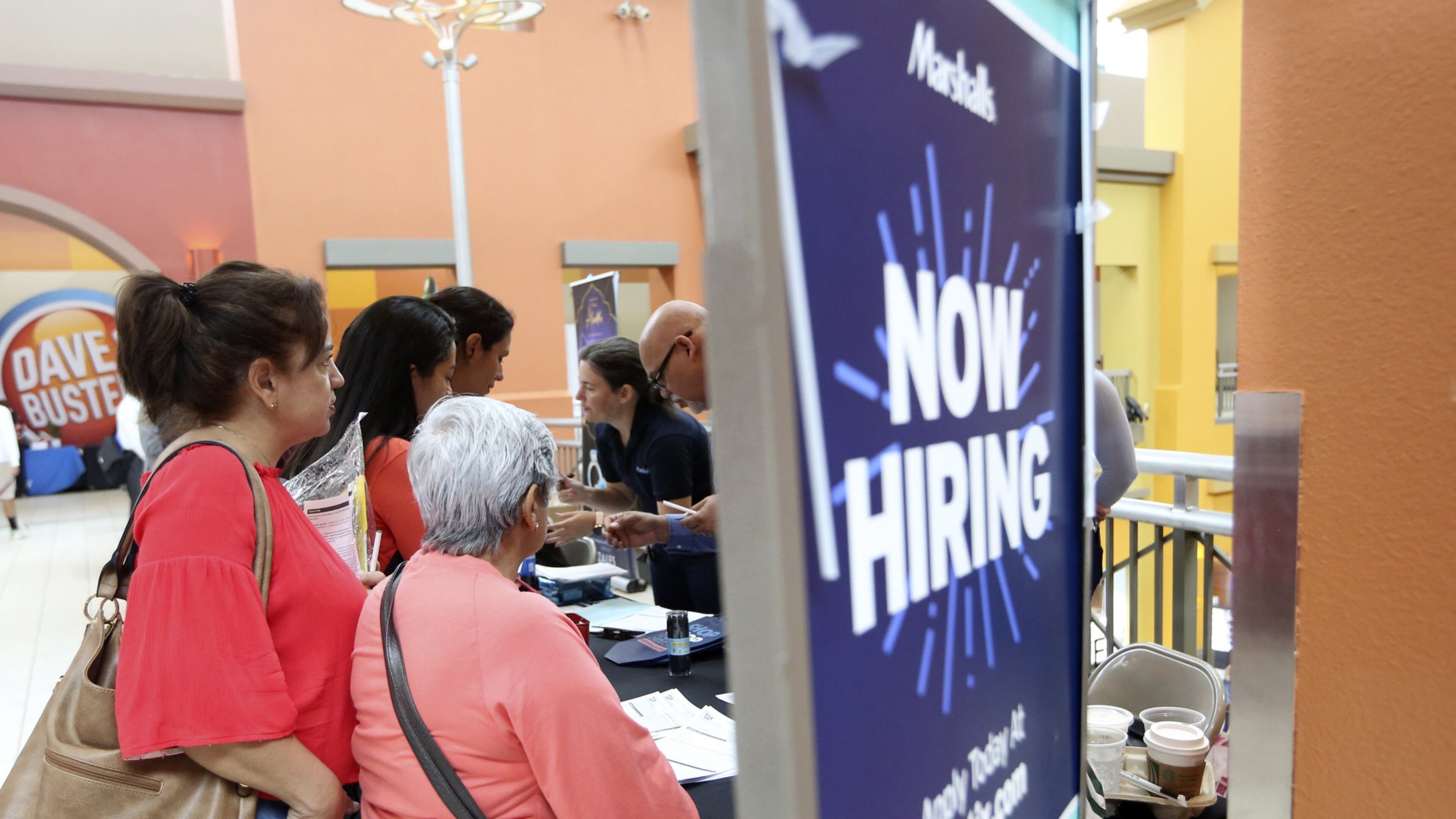Georgia economy to slow dramatically, UGA forecasts

Georgia’s economic growth will slow dramatically next year as it runs into the headwinds of international trade disputes, but the state should continue to add jobs, forecasters said Wednesday.
Unemployment likely will tick up in 2020, but Georgia should still see 21,000 new jobs, said Benjamin Ayers, dean of the University of Georgia's Terry College. That's less than one-third of the increase this year and a slower pace than the national average, Ayers said.
"We are impacted more by the trade war than the average state in the U.S.," he said. "We are not predicting a recession. But, obviously, the odds of recession are higher than have been in the past."
Georgia ranks 11th in the country in imports and seventh in exports. Many of the state's largest companies – from Delta Air Lines to Coca-Cola – are dependent on international trade.
The forecast, produced by the Selig Center for Economic Growth at Terry, pegged hopes for continued growth mainly on consumer spending spurred by low interest rates, plentiful jobs, rising home prices and steady if modest wage growth.
“All those bode well for consumer spending in 2020,” Ayers said.
The state also benefits from increased defense spending – which flows through its military bases.
But the lion’s share of growth will be in just a few regions – mainly metro areas, with Atlanta carrying most of the load, Ayers said. “We expect rural areas to be in a recession next year.”
With growth slowing, the Georgia economy is vulnerable to economic shocks, he said. “A war between Iran and Saudi Arabia would almost certainly push oil prices above $100 a barrel, which would almost certainly precipitate a recession.”
Oil on Wednesday afternoon was trading below $60 a barrel.
Global growth overall has been slowing, said Avery Shenfeld, chief economist of CIBC, also speaking at the UGA event.
Economics in China and Europe have braked, he said. “The real weakness in the world economy is really overseas, and there is spill-back onto the United States.”
While cuts in short-term interest rates by the Federal Reserve have stimulated business and consumer spending in the United States, that assistance does not address the fundamental problem, Shenfeld said. "This is really a global story."
Other economists have also predicted a deceleration, though the UGA forecast was more downbeat. For instance, the quarterly report from the Economic Forecasting Center at Georgia State forecast that the state will 49,700 new jobs in the coming year.
Georgia’s economic deceleration predictions
Job growth 2019: 69,000
Job growth 2020: 21,000
Average unemployment rate, 2019: 3.9%
Average unemployment rate, 2020: 4.4%
*Gross domestic product, 2019: up 2.6%
*Gross domestic product, 2020: up 1.0%
*Adjusted for inflation
Source: Selig Center for Economic Growth at Terry College of Business, University of Georgia



